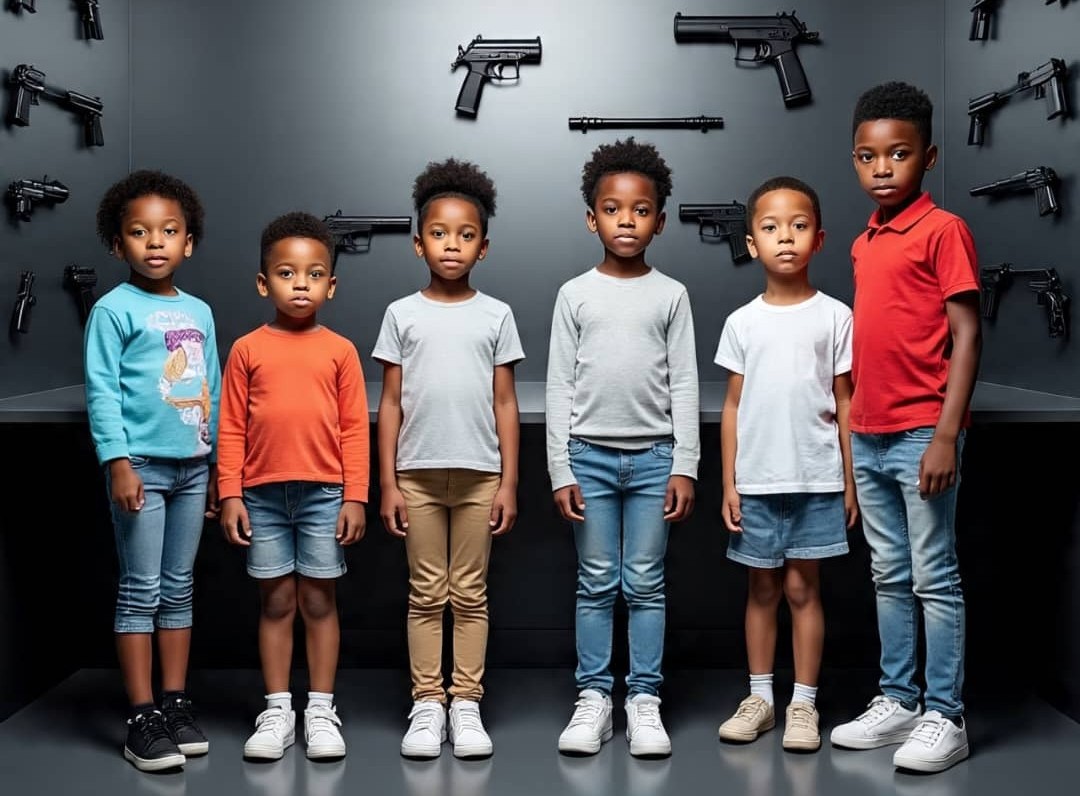By Uko Unyime
On June 14, 2025, tragedy struck at a Polaris Bank branch in Awka, Anambra State, Nigeria, when a 10-year-old boy gained access to a firearm and accidentally shot his father. Inspector Okolie Amechi, who died hours after he was rushed to the hospital, was a police officer on duty at the bank.
The heartbreaking event has shaken the local community and raised urgent questions about gun safety education in Nigerian homes, schools, and security environments.
As authorities investigate how the child accessed the weapon, the incident brings into sharp focus the pressing need to educate children about what to do if they ever encounter a gun.
In a society where firearms are increasingly present due to growing insecurity and police visibility, such education becomes not just important, but pressing.
Firearms are dangerous tools, and their accessibility, whether in homes, cars, or public places, poses a direct threat to children.
Although strict laws govern civilian gun ownership in Nigeria through the Firearms Act (2004), the increasing visibility of police and paramilitary officers with arms puts many children in close proximity to guns.
But it is not a Nigerian thing. Accidental shootings by or involving children have occurred in different parts of the world, especially where weapons are improperly stored.Children are naturally curious. When they come across a firearm without supervision, their instincts might push them toward touching or playing with it. That’s why education is crucial.
So how do you train children to avoid guns-related accidents?
This is a mantra that should be drummed repeatedly to the child’s hearing: Train a child to stop immediately they see a gun, and they should not touch it under any circumstance.
Children should also be taught to immediately leave the area if possible, especially if others are tempted to play with it. Additionally, the child should be trained to tell an adult what you saw immediately.
National Rifle Association in the US, through its Eddie Eagle GunSafe program that teaches parents about gun safety and how to relay the information to their kids, has developed simple formula parents and teachers can use to teach children as young as four how to avoid gun accidents.
The formula says when you see a gun, stop, don’t touch it, run, and then tell a grown up. The program advises parents and teachers to reinforce this knowledge through role-playing scenarios, animated videos, and safety posters in classrooms.
Children exposed to violent video games, action films, or music videos might see guns as cool, powerful, or playful. But parents and schools must correct this mindset immediately.
Guns can cause permanent injury and death, and every child must be made aware. It is crucial to let them know that only trained professionals like the police, and military are allowed to use guns
Most importantly, children seeing someone with a gun is not an invitation to touch it, and teachers should integrate this into civic education or security awareness topics, especially at the primary and junior secondary level.
What can you do after a gun accident?
In the tragic event that a shooting does happen, dialing an emergency number can be life–saving, and children must be taught beforehand how to make that call. In Nigeria, the emergency line is 112.
Schools should run regular drills to simulate gun-related emergencies and train children on first response actions like seeking shelter or notifying adults.
The loss of Inspector Amechi is not just a personal family tragedy but a national wake-up call. A 10-year-old should never be in a position to access a firearm.
This must mark a turning point for Nigeria. For example, the Nigeria Police Force should initiate a nationwide awareness campaign on firearm safety, especially for the families of officers.
The Ministry of Education and the National Orientation Agency should work with security experts to design a national gun safety curriculum for children aged 6–14.
There is also the need for the police force to mandate mandatory gun safety protocols in all police households, including routine family briefings on weapon storage.
Parents, security agencies and educational institutions must prioritize child-targeted gun safety training. Prevention is not a one-time talk but a continued campaign of awareness, reinforcement, and responsible behavior modeling.
The tragedy should become a catalyst for nationwide action so that no child, anywhere in Nigeria, finds themselves holding a weapon they should never have touched.
A tragic incident occurred on June 14, 2025, in Awka, Anambra State, where a 10-year-old boy accidentally shot his father, Inspector Okolie Amechi, at a Polaris Bank branch.
This event highlights the urgent need for enhanced gun safety education in Nigeria, especially given the increasing presence of firearms due to insecurity and police visibility.
Despite existing strict gun laws, children are often exposed to firearms, emphasizing the critical need for educational programs that teach children to avoid guns.
The Eddie Eagle GunSafe program in the US exemplifies effective gun safety education, using a simple formula: stop, don’t touch, run, and tell an adult upon seeing a gun.
This approach should be supported by role-playing, videos, and safety posters, while counteracting any misconceptions from violent media where guns are seen as playful.
Teachers should incorporate gun safety in school curriculums to reinforce responsible attitudes toward firearms.
In light of this tragedy, it is vital for all stakeholders - parents, schools, and security agencies - to undertake a sustained campaign ensuring children are educated and safeguarded against gun-related incidents.
Implementation of mandatory gun safety protocols in police households and a national gun safety curriculum for children aged 6-14 are essential steps.
The tragic loss of Inspector Amechi serves as a crucial wake-up call to instigate nationwide action for preventing children’s access to firearms.






